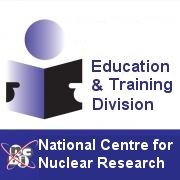Power profile assessment for coupled thermal hydraulic and neutronic calculation for HTGR application
2023.04.13 16:07 - Katarzyna KuźniarTemperature reactivity feedback, caused i.e by the Doppler broadening effect, is a crucial aspect of the safety of any reactor. High-Temperature Gas-Cooled Reactors (HTGR) is not an exception. Nevertheless, specific neutronic and thermal-hydraulic properties of those HTGR cores require special anticipation. Due to the long neutron migration length in graphite, long-range neutronic spatial effects should be taken into consideration. Yet, deep neutron thermalization imposes high flux gradients and other important effects. Moreover, the energy of the thermalized neutron is the thermal equilibrium energy of the core, which obviously depends on the temperature. Those features can be significant for the thermal-hydraulic performance of the reactor. Due to declared TRIstructural-ISOtropic (TRISO) particle properties, such as high resistance to their damage, it is essential to identify and assess physical conditions that can increase the risk of radioactive material released from the fuel. In order to estimate hot spots in a fuel element in the HTGR prismatic core a thermal-hydraulic model is being created for the core case that utilises the High Temperature engineering Test Reactor (HTTR) fuel block structure using OpenFOAM CFD software, supported by a neutronic model in the Serpent code and utilising the Serpent multi-physics interface. During the presentation, the applied methodology for the HGTR fuel element simulation, and perspective for full core application will be discussed.
| Attachment | Size |
|---|---|
| 485.72 KB | |
| 442.29 KB |













